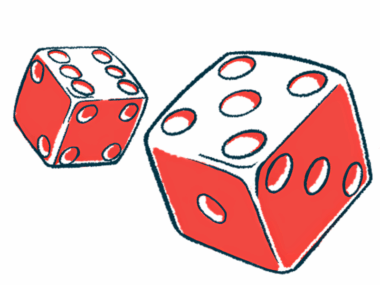Overwhelmed and Immobile: What to Do When Motivation Vanishes
Written by |

Looking frantic, Neo, my brain’s imaginary neocortex, sighs. “I can’t handle all of this,” he says. “Tips on how to live better with a chronic disease, tips on managing chronic pain, tips on depression and putting on a new face. I get overwhelmed just thinking about it all.”
“I want to be healthier,” Neo adds, “but I’m worried that I am incapable and won’t get it right. It gets so that I am spinning in my head with so many thoughts and feelings and not moving. Before I know it, the day has slipped by and I am back to the same routine. I have very little relief the next day from feeling miserable. It never changes.”
Neo collapses in the chair. Dr. C places a hand on Neo and says, “You saw the terrible state I was in after what happened. At times, it felt impossible to move. Like you, I woke every morning feeling miserable. I was at a fork in the road. I needed to choose to show up each day and do something, regardless of how small. Or I could choose to feel miserable. Giving up and showing up are just a breath apart. Sure, I was afraid of failing. I was replacing old habits with new ones, and failures happen. If I learn from the failures then they are as important as the successes.”
Neo sighs, “I’m reading all of your columns. That must count for something.”
Dr. C takes a seat in front of Neo. “I’m so glad you are finding them useful. Awareness and learning new ways are the first steps toward a life with more moments of well-being. But to move forward, you need to show up ready to turn what you know into an action plan specifically tailored to your situation. It’s a fork in the road offering the possibility to live better with a chronic illness.”
“Yeah, I know, a wellness map. I got one from our healing relationship. But things have gotten worse and there’s so many illness-related problems. I just can’t do it all.” Neo’s voice fades into a soft whimper.
Touching Neo’s hand in a gesture of support, Dr. C says, “Feeling like you can’t do it is much different than physically not being capable. From the darkness, or even partial darkness, it is hard to navigate. Especially if one is using the old coping habits.”
“Think of it this way. You’re traveling in a new car and you get a flat tire. The new car is the new face you have, and the flat tire represents those coping skills that used to wheel you along in life. The tire’s gone flat because the old coping skills no longer work with the new face.”
“Now, you can choose to continue driving on the flat tire. Anyone who’s tried this knows how difficult it is, even hazardous. You can choose to sit in your car on the side of the road and do nothing. Just give up. Or you can choose to take actions that get you moving again. Don’t think of the entire trip. Just take the first step toward fixing the flat.”
Mrs. Dr. C sees Neo and Dr. C in deep conversation. “Oh, Neo,” she says. “You look like you’re struggling.”
Neo glances up. “I’m trying on my new face, and Dr. C is helping me change my flat tire.”
“That’s great. I know for a fact that Dr. C had a couple of flat tires over the last month. It started when on a really bad day, he felt compelled to wield a pickax and install a drainage ditch along the driveway.” Mrs. Dr. C sighs. “He knows this is bad for him. But those old habits of pushing through and doing too much were inescapable. He suffered greatly over the following week with muscle weakness, stiffness, and pain. It flattened all his tires.”
Neo looks at Dr. C, who smiles sheepishly and says, “She’s right, you know. I really knew better. But it just seemed so important at the time to get it done. I can be my worst enemy. Undue stress to the body from any source can create problems. I know I need to practice the whole rehab program described in my columns, but there are days when I fail.”
Neo smiles and reaches out to Dr. C. “You and I will work together on wearing the new face. And we will ‘show up’ and not give up. Just let me know where you keep the tire jack for the next flat tire.”
***
Note: Parkinson’s News Today is strictly a news and information website about the disease. It does not provide medical advice, diagnosis or treatment. This content is not intended to be a substitute for professional medical advice, diagnosis, or treatment. Always seek the advice of your physician or another qualified health provider with any questions you may have regarding a medical condition. Never disregard professional medical advice or delay in seeking it because of something you have read on this website. The opinions expressed in this column are not those of Parkinson’s News Today or its parent company, Bionews, and are intended to spark discussion about issues pertaining to Parkinson’s disease.



Derek C. Marshall
How do you separate the ravages of PD from the typical problems of aging that have to deal with the increasing entropy of life (the roof needs repair, the lawn mower is broken, weeding the garden, trimming the overgrown hedge, etc.) with personal entropy (I am not as strong as I used to be, my balance has deteriorated, I can't remember people's names, etc.)?
Dr. C
Hi Derek ~ Both chronic disease and old age create mental and physical barriers. the goal is quality of life and doing everything possible to achieve that goal. Do something every day to move towards that goal and you will be surprised! Just "show up" and do one thing a day... you will succeed!
Dr. C.
Jacqueline
"Giving up and showing up are just a breath apart" is a brilliant line. Thank you.
Dr. C
Hi Jacqueline. I feel that at any moment I could give up. I take a deep breath and show up. Some days are easier than others.
Thank you for the compliment. I appreciate feedback from folks... and appreciate your reading the columns and checking in with BioNews.
Dr. C.